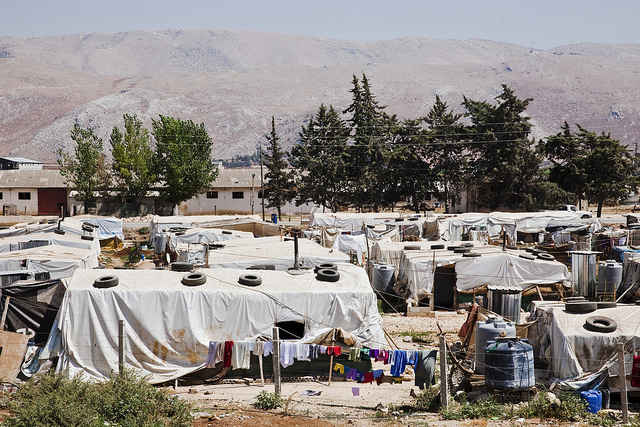 Source: UNHCR UN Refugee Agency
Source: UNHCR UN Refugee Agency
Syrian Refugee Crisis Threatens the Security and Stability of the Middle East
The civil war in Syria is in its fourth year with no clear end in sight. While battles rage on between the forces of the Assad regime and rebel groups, civilians leave their homes and flee the country. With millions having already fled Syria and still more to follow, a major refugee crisis exists that threatens the security and stability of the entire Middle East.
The millions of refugees pouring out of Syria present a major humanitarian crisis for obvious reasons. The daily requirement of food and water has greatly diminished the resources of host countries, especially those that already struggle to provide resources to their own populations. These countries are receiving refugees faster than they can provide shelter, causing the refugees to survive in unsafe conditions or roam the streets and beg. The lack of resources and money available will quickly make it impossible for receiving countries in the Middle East to sustain the millions of Syrian refugees, not to mention their own populations. This will destabilize Syria’s neighboring countries, creating an even more severe humanitarian crisis in the region.
Even though it is currently a humanitarian issue, the refugee crisis has the potential to threaten national and global security as well. A further-destabilized Middle East would open the door to the radicalization of neglected refugees and native populations alike. This would strengthen terrorist groups in the region and prolong the devastation that helped to contribute to the refugee crisis in the first place. Overcrowded refugee camps have the potential to act as breeding grounds for disease and terrorism. The already heightened tensions in the region coupled with the increased presence of terrorism could lead to more wars, which would continue the cycle of destabilization, rise of terrorism, and humanitarian crises.
By the numbers:
In 4 years of the war in Syria:
– 250,000 killed
– 7.6 million forcibly displaced within the country
– 4 million fled country– 1.9 million to Turkey
– 1.1 million to Lebanon
– 629,000 to Jordan
– 400,000 to Iraq, Egypt, and North Africa
Historical Precedent:
The situation in Lebanon best exemplifies the immense strain that the Syrian refugees place on neighboring countries. Lebanon is a small country that has already dealt with the challenge of accommodating refugees of war. In the 1970s, 100,000 Muslim Palestinians fled into Lebanon, which upset the delicate balance between Muslims and Christians and helped to contribute to its fifteen year civil war. Years of war and sectarian conflicts have left Lebanon fairly unstable as it is. As a result, Lebanon is hesitant to help the Syrian refugees because of the possibility that another war will break out.
If anything, capable powers should help the displaced and refugee populations. A cautious stance on the Syrian civil war is beneficial for the time being, but failing to help the innocent victims of war should not be an option. While the outcome of the war remains uncertain, the failure to help refugees and forcibly displaced people will certainly be detrimental not just for the affected people, but also for the security and stability of the Middle East.





